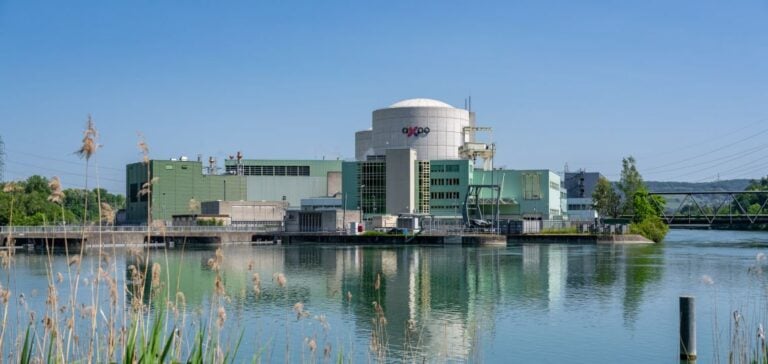The Beznau nuclear power plant, located in the canton of Aargau in Switzerland, is the oldest operational nuclear facility in Europe. Commissioned in 1969, it has been a significant part of Switzerland’s energy production for over five decades. Axpo, the company managing the plant, confirmed that it will cease operations in 2033, with the Beznau 2 reactor set to shut down a year earlier, in 2032.
This closure aligns with Switzerland’s progressive nuclear phase-out policy, adopted in 2017 following a popular referendum. This policy prohibits the construction of new nuclear facilities but allows existing plants to operate as long as they remain safe. Currently, nuclear energy accounts for about 29% of the country’s electricity production.
Investments to ensure safety
Axpo plans to invest 350 million Swiss francs (approximately 376 million euros) in the plant’s maintenance and safety until its closure. Since its commissioning, the operator claims to have spent over 2.5 billion Swiss francs on modernizing and upgrading Beznau, emphasizing safety as a top priority.
Despite these measures, there is opposition to extending the plant’s operational lifespan. Greenpeace Switzerland has criticized the decision as an “unnecessary and dangerous experiment.” The organization advocates for an immediate shutdown, arguing that the future of energy lies in renewable sources.
Challenges with nuclear waste
Beznau’s closure raises critical questions about the management of nuclear waste. In 2022, Switzerland selected a site in the northern part of the country, near the German border, to build a deep geological repository. This facility aims to provide a long-term solution for nuclear waste while minimizing environmental impact.
However, the project still requires several approvals. The Swiss government is expected to make a decision on the application by 2029, followed by a parliamentary review in 2030. A referendum may also be held to finalize the choice.
A shift towards renewable energy
As Switzerland gradually phases out nuclear energy, it is ramping up investments in renewable sources. The goal is to diversify its energy supply and enhance the country’s energy independence. Solar, wind, and hydropower projects are central to this strategy.
This transition reflects a broader international trend, where many countries are moving away from nuclear energy in favor of more sustainable solutions. The closure of Beznau could become a benchmark in this global shift toward renewable energy.





















